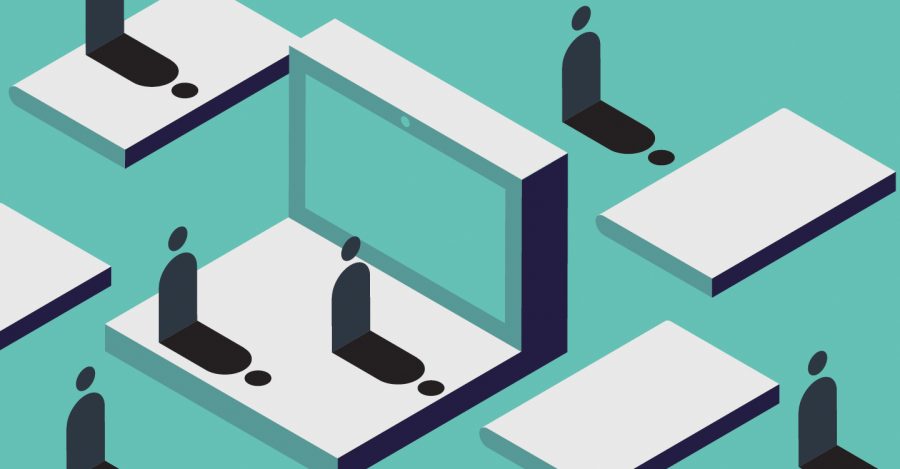Our View: Evolving thoughts on learning platforms
February 1, 2022
There isn’t much debate that each person has their own way of learning. The mentality of “one size fits all” just doesn’t work when it comes to acquiring knowledge. A common conversation involves the basics of learning through hearing, seeing, speaking or hands-on. But what if the conversation needs to be more than that?
In our current state of trudging through the pandemic, styles and functional education have been some of the key topics spanning all levels of learning institutions. Blending what’s best for everyone both in safety and comprehensive learning has been a true challenge and ongoing debate.
The two ends of the spectrum include the more traditional route of being fully in-person on campus while the opposite end involves little to no human contact with virtual online classes. Then there’s those options in the middle that have a little bit of both with a hybrid or synchronous settings.
So, what do the Clarion editors have to say about their preferences and what works best from their experiences?
The conversation rides the pendulum fully from one end to the other. In some respects, online learning is beneficial and even necessary. There are some students who have pre-existing conditions so continuing to distance is safer. There are also cases where lifestyles including work, family, and/or a commute make online school the only feasible option. In many of these cases, there’s a focus to simply work through the basic requirements of completing the education as though wearing blinders to avoid distractions. Online schooling helps to prioritize the essentials.
Other benefits mentioned for the virtual college experience emphasized futuristic perspectives where communication skills will be broadened as platforms to meet are expanded beyond in-person. And since the mandatory jump into online schooling has been implemented thanks to various safer-at-home orders, virtual classrooms are working out the kinks to make it the best experience possible for its students.
As we swing now to the other side of the spectrum, we see opposite reactions to online learning where benefits are seen within in-person settings instead. There’s no doubt that humanity was made for community, therefore making virtual learning an isolating event that can drastically affect mental health not to mention eye strain and other bodily repercussions. Being at a distance creates unique challenges for connecting with other students for friendships, study buddies or tracking down instructors that aren’t simply a “door knock” away at their office.
In some cases, online learning feels more self-taught and therefore doesn’t seem to give the benefit or money’s worth of being on campus. For those who aren’t looking to just cruise through school with the essentials but instead get plugged into more of the college experience with friends, campus activities and parties, being solely online can be a big bummer. Watching a screen about an event doesn’t give quite the same experience as being there with all five senses activated.
Now that we know more of what the editors had to say, how are other students reacting and has enrollment seen any shifts at Madison College?
Each campus has their own factors but, in general, the data seems to ebb and flow with the pandemic where Fall 2021 had over 70% of classes being online with 30% being in-person to flipping with 70% being in-person and 30% in some form of virtual format. School programs would affect that such as the health and manufacturing classes that require much more hands-on learning. As one might expect, the older age groups are vying for the remote options possibly due to work and family whereas those in their early 20s are registering for more in-person classes.
While, yes, the challenge continues to find the best solution for everyone, it’s also to be noted that humanity was never meant to be put in a box. Not everyone is going to learn the same or appreciate the same style of education, specifically in-person or virtual. But that’s OK.
The debate will continue but it’s pointing to the way the human brain was created: to be unique.































